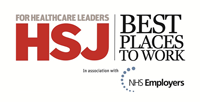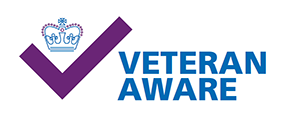Patient Information Leaflets - C
Welcome to the Patient Information Leaflets section
To search for a leaflet, please use the search facility on this page.
Please note if you have any questions or queries relating to the leaflets, please contact the telephone number which appears on the leaflet.
Disclaimer
The information leaflets on this internet site are intended to advise and benefit patients who intend to use, or are using, the clinical services provided by St Helens and Knowsley Teaching Hospitals NHS Trust.
The Trust does not accept responsibility for using the information contained in the leaflets for any other purpose than that described within them.
If you are concerned about your clinical condition you should seek qualified medical advice from your GP or the relevant clinical team at the hospital.
- Cancer Services
Title - Accessing Psychological Support for People with Cancer
Description - Being diagnosed with cancer can be an extremely difficult and stressful time. Almost everyone will feel shocked and upset at first. For many people these feelings improve over time with support from their healthcare team, family and friends.Title - Digital legacy toolkit V1.1
Description - It is becoming increasingly important that everyone makes plans for the online accounts that they use and the personal photos, videos etc that they contain. Making plans can help ensure that digital assets are not lost and can help safeguard someone’s digital legacy. Digital assets, include things such as online bank accounts, photos saved online and social media accounts etc. Digital legacy is what is left online once someone dies.Title - H.O.P.E. (How to Overcome Problems Effectively) Course
Description - The HOPE Course is a free course, available to all patients who have completed cancer treatment. The course is a self-management course designed to help you cope emotionally, psychologically and physically after completing cancer treatment. It provides the opportunity to meet other people who have also recently completed treatment and together find new ways to move on with a new meaningful life.Title - Indwelling pleural catheter (IPC)
Description - The IPC is a soft thin tube that is inserted through a small incision made in the skin and sits in the lining of the lung also known as the pleura. The opposite end of the tube stays on the outside of your chest, there is a one way valve on this side that prevents any fluid leaking out and air entering the tube into the chest.Title - My Medical Record (MMR)
Description - Have your opportunity to enhance your quality of care. Are you under the care of the St Helens Skin Cancer Team? In addition to regular face to face follow up appointments, you may also be eligible for access to an online patient portal called My Medical Record (MMR).Title - Suspected Brain Tumours
Description - Following a scan an abnormality in your brain has been found, which may be a malignant brain tumour(s) (cancer). This leaflet is to help you understand: Primary and secondary brain tumours (cancer), What will happen next? Steroid medication and how this will help? What is a seizure and medication to help? Where to find support.Title - The Cutting Room - Hairdressing and Wig Salon Service
Description - This booklet explains the services provided by our two professional hairdressers/wig technicians at The Cutting Room. The Cutting Room is a private, fully equipped salon, which is based at the Lilac Centre at St Helens Hospital. - Cardiology
- Carers
Title - Carers Passport
Description - Carer Passport for families and friends looking after someone. If you are staying with a patient to provide carer support whilst they are in hospital we will arrange for you to have a Carers Passport. This will give you additional support to care for your relative, partner, friend and enable you to access a variety of concessions. - Clinical Biochemistry
- Clinical Psychology
Title - Accessing Psychological Support for People with Cancer
Description - Being diagnosed with cancer can be an extremely difficult and stressful time. Almost everyone will feel shocked and upset at first. For many people these feelings improve over time with support from their healthcare team, family and friends.Title - Help with big feelings about your health Information for children - primary school
Description - Having a health condition can be really hard work. Sometimes you find it easy to do all of the things you need to do to look after your health. Other times, it might make you feel really sad, angry, worried or fed up. Sometimes you have other things going on in your life that makes you feel stressed or sad, like problems at school, with friends or family.Title - Psychological Support after a Stroke
Description - Having a stroke can be a shocking and difficult experience. It can impact on different things like walking, talking, eating, drinking and moving. It can also have more “hidden” effects on thinking, planning, memory, solving problems, relationships and emotions.Title - Psychological support for people who have experienced a traumatic event
Description - After a traumatic experience, the brain must work very hard to process the memories of the event. This is incredibly difficult especially if there is any threat to our survival. In order to do this, the mind replays the event in the days to weeks following.Title - Psychological support for people with chronic pain
Description - Chronic pain is defined as pain that lasts for more than three months. Chronic pain could occur after surgery, or injury but persists after the normal healing process is complete. Chronic pain can also occur with no obvious initial injury or event. It is also a common feature of conditions such as fibromyalgia syndrome. - Community Cardiac Services
Title - Cardiac Rehabilitation Exercise Programme
Description - During activity and exercise, muscles need more oxygen. To meet this increased demand, the heart beats faster so that the blood carrying the oxygen can be pumped to the muscles. Your breathing will also increase so that the amount of oxygen in the blood increases. Feeling short of breath and having your heart rate increase, is a normal response to exercise.Title - St Helens Cardiac Rehabilitation Service
Description - You may have been referred to our service from the hospital, your GP, practice nurse, cardiologist or other health care professionals. This referral may be due to a recent diagnosis of: • A heart attack • Heart failure • Heart surgery/PCI (stent). You maybe also be waiting for or having investigations or treatment for your heart condition.Title - St Helens Nurse-Led Heart Failure Service
Description - Heart failure is a condition caused by the heart failing to pump enough blood around the body at the right pressure. This can lead to a number of symptoms which can include shortness of breath, tiredness and swelling of feet, ankles, legs or abdomen. The symptoms can be managed effectively by medication to support the pumping of the heart. - Community IV Therapy
- Complaints
- Copying Letters to Patients
- Corporate Services
Title - Fluid input and output (Fluid balance)
Description - Fluid balance is a term used to describe the amount of fluid that goes into your body (input) and the amount of fluid that goes out of your body (output). Illness and injury can affect fluid balance and sometimes when you are in hospital, the doctors and nurses need to know what amount of fluid is going into and out of your body. This helps the team to know if your body is working as it should be. - Covid-19






